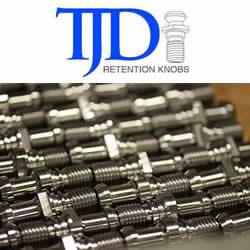5 Steps to Preparing for the Future in the Manufacturing Sector
Creating a Flexible Manufacturing Facility Using Automation Technology
Manufacturing Jobs in the Gig Economy
AI's Role in Overcoming the Manufacturing Hiring Crisis
Dispute Resolution in the Modern World of Manufacturing
Closing the Skills Gap
LM Industries - A Digital OEM
How to Automate Phase Gate Processes in Manufacturing
ETO Manufacturers Can Finally Offer Online Shopping via bCommerce
3D Printing the Friendly Skies: Additive Manufacturing & the Future of the Aerospace Supply Chain
Transformative Technologies to Shape the Future of Manufacturing
Finding the Right Type of Loan for Your Manufacturing Business
Automating Back-End Processes in Advanced Manufacturing
How to Dodge the Industry-Wide Knowledge Gap
Three Digital Transformation Trends To Drive Long Term Organic Growth
Records 181 to 195 of 246
First | Previous | Next | Last
Featured Product

